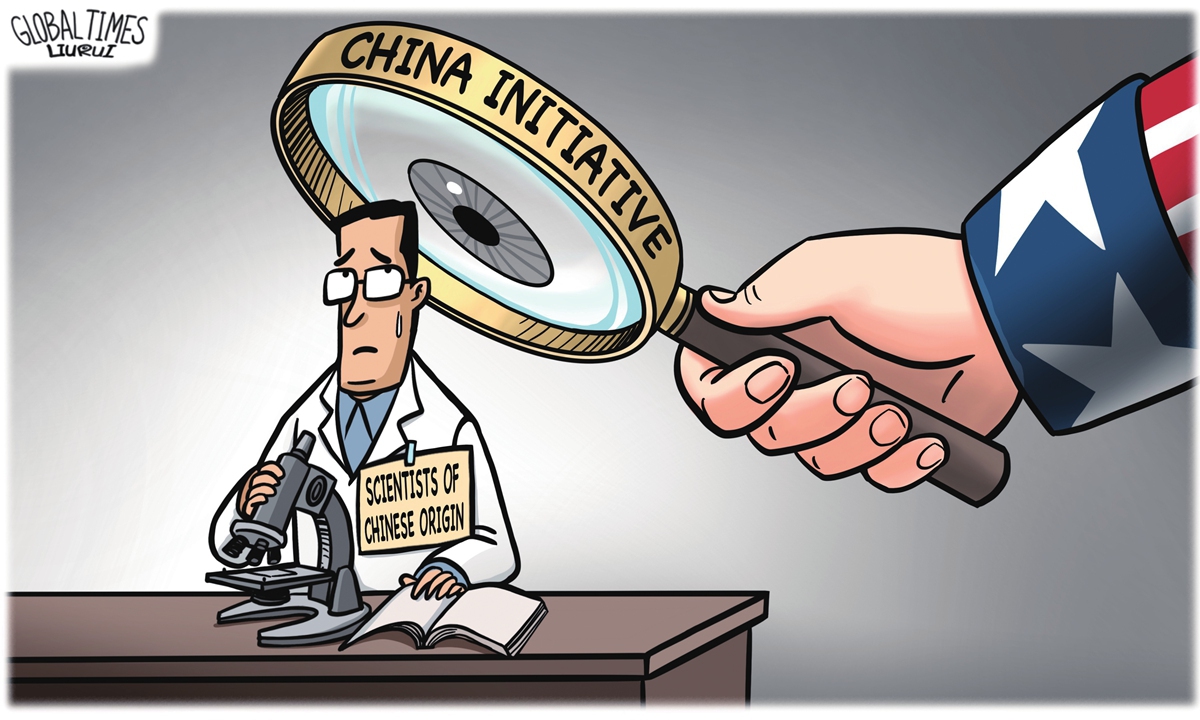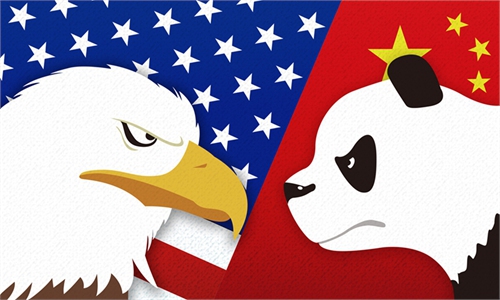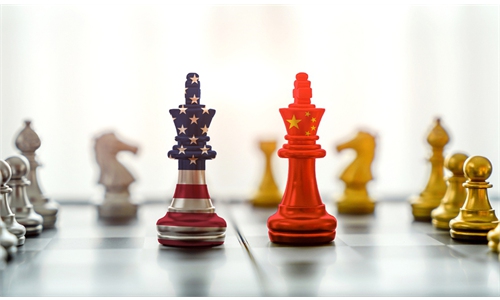MSS unveils how US slanders and frames Chinese scholars
Case reveals absurd nature of ‘China Initiative’

Illustration: Liu Rui/GT
China's Ministry of State Security (MSS) on Tuesday disclosed the case of Tan Hongjin, a typical example of how US authorities distort facts, slander and frame individuals, and make improper accusations, while continuously exerting pressure to force a confession, revealing the malicious and absurd nature of the US' "China Initiative."
In November 2018, the US Department of Justice launched the "China Initiative" as part of the US government's strategy to contain China. The initiative aimed to fabricate so-called "Chinese espionage cases." The US Department of Justice has been recklessly arresting Chinese-origin experts and scholars through malicious tactics, conducting indiscriminate investigations and harassment, continuously hyping the "Chinese espionage threat," according to the MSS.
Tan, a Chinese scientific researcher in the US, earned a PhD in materials science in the US and joined Phillips 66, a US petroleum company, in June 2017 to work on energy storage technology. For family reasons, Tan decided to resign on December 12, 2018, to return to China.
On the day of Tan's resignation, Tan found a company USB drive at home, which he promptly returned to his supervisor, even though the company had not raised any security concerns regarding it. A week later, a group of armed FBI agents suddenly surrounded Tan's residence in the US, forcibly searched the premises, and then arrested Tan, according to the MSS.
On December 21, 2018, the US Department of Justice accused Tan of stealing "trade secrets" from Phillips 66, worth more than $1 billion.
On Tan's case, two former Phillips 66 employees of Chinese origin testified against baseless accusations, stating the company lacked formal security regulations on USB drives and encouraged sharing research. They noted the company had no restrictions on using personal computers for work. However, the two employees faced threats and retaliation, being pressured to retire early or leave their positions, said the MSS.
Tan had to spend his savings to hire a lawyer to prove his innocence. The US courts not only denied Tan's bail application and hindered his communication with the outside world, but also delayed the legal proceedings, keeping Tan in a poorly conditioned detention center for 11 months, severely affecting Tan's mental and physical health, said the MSS.
The US prosecution urged Tan to accept a government-appointed lawyer and included all electronic devices Tan had accessed in the investigation, claiming they needed to review 4TB of data, which led to multiple delays in court. The data also required review by Tan's lawyer, with legal fees expected to reach more than $400,000, putting immense financial and mental pressure on Tan, said the MSS.
The US prosecution even communicated through Tan's cellmate privately, suggesting that their goal was not Tan himself and encouraging him to admit that the files he downloaded benefited the Chinese government and companies, implying that doing so could lead to a reduced sentence, according to the MSS.
Under multiple pressures, Tan ultimately admitted to illegally downloading and storing one company document related to trade secrets without authorization. However, Tan denied the US prosecutors' allegations of involvement from the Chinese government or companies.
US mainstream media largely ignored the reasons behind Tan's plea and the specifics of Tan's admission, focusing instead on his compliance with the law, which helped the US judicial system fabricate the so-called "Chinese economic espionage case." As a result, Tan was deprived of his personal freedom for 32 months and suffered severe physical, mental, financial, and reputational damage, according to the MSS.
According to the public data, since the implementation of the "China Initiative," 87 research institutions across the US have been affected, with 246 scientists with Chinese origin identified as having issues. As a result, the careers of 103 researchers have been significantly harmed, according to the MSS.
Global Times


